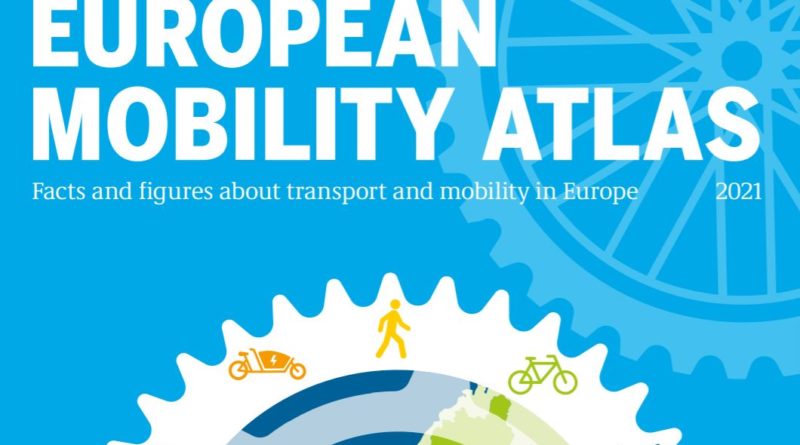Electric bike sales now 17% of all EU cycle sales, growth rate accelerating
Electric bike sales now represent 17% of all complete bicycles sales made in the EU, a new paper on European mobility trends has concluded.
Published last month, the EU Mobility Atlas seeks to understand how Europe’s mobility picture is changing over time and how industry benefits alongside. In pooling a broad spectrum of data from across the EU the authors found that electric bike sales are achieving a growth rate far steeper than that of electric car sales; in fact electric cargo bikes sold more than electric cars in Germany in 2018.
The EU industry is made up of around 900 small and medium enterprises, responsible for a workforce of 120,000 (60,000 direct) and an R&D budget of over €1 billion annually, outlines the segment dedicated to the bicycle industry in its opening paragraphs.
It is here that we’re told 23 members states are producing around 20 million bikes per year, which in 2019 saw electric bike market share rise to account for 3.33 million. This growth has come from a low base, but one that has accelerated rapidly. By 2030 it is now anticipated electric bike sales will reach 13.5 million units.
With production in Europe ramping up significantly, even countries like Denmark are shifting gear, with 41% more e-Bikes made in 2020 (4,712) over 2019 (3,347). Those numbers are dwarfed in western and central Europe with tallies surging beyond many other EV form’s combined tallies. In 2019, 3,332,000 electric bikes sold, compared to 2,775,000 in 2018 and 2,088,000 in 2017. This growth rate is quickly accelerating ahead of the E-Car, Hybrid and Alternative powered vehicles markets, which combined registered 1,612,000 sales in 2019; 1,110,000 in 2018 and 851,000 units in 2017.
In some countries the electric bike has now surpassed half of all bike sales as the mobility opportunity is realised. These tend to be countries with an already strong cycling culture, such as the Netherlands and Germany. In the UK the trend toward electric bike sales is best demonstrated by the import data, which has shown traditional bike imports stagnating against electric bike shipments.
The bike and car industry forecasts diverge further in the findings, with employment in the bike industry shown to be on course for a 232% growth since 2016, while the automotive industry’s recruitment rate is expected to decline, possibly by as much as 90% by 2030. With electric bike sales driving production growth, between four and five jobs are said to be created as a result of 1,000 e-bikes made. Standard bicycles, it is suggested, account for two to three jobs per 1,000 made.
Poland is expected to be a significant recruiter of staff working on complete bicycles, as is Italy, The Netherlands, Bulgaria and Romania. Germany’s market is showing strength in both bike and parts and accessories development and is expected to be Europe’s largest recruiter with 14,000 jobs, just ahead of Italy 12,000, Portugal 6,590 and Poland at 6,180.
As far as sales trends go, 60% of electric bike sales at the checkout in Europe are also largely made in the EU. In Germany in the first half of 2020 the bike boom saw sales of bicycles, sports and camping goods beat the market, with retail sales up 1% and car sales down 18%.
The true costs of each transport form is addressed, with the 2016 estimated cost to the EU of transport’s carbon emissions alone set at €140 billion. The losses, which strongly considered external factors such as global warming, put a €100 cost on a tonne of CO₂. Accidents related to transport tallied €282 billion, the largest portion of an overall €716 billion bill (2016).

The report says that seven cities in the EU-28 are now using road pricing to intelligently reduce car traffic and congestions, simultaneously improving the local environment and increasing quality of life for residents.
“The goal of increasing the costs of transport is not to punish people, to generate revenues or to impede mobility. The current transport system is inefficient due to false prices, resulting in a high congestion level and severe environmental effects. With true prices, more environmentally friendly modes of transport will become more attractive as an adequate alternative for many car trips,” concludes this section.
Cargo Bikes, found in one U.S. study to help those who also own cars reduce trips by this means by 41%, will play an ever-increasing role in logistics, writes the paper. This is in part thanks to an EU transport declaration made in 2015 (‘Declaration on Cycling as a climate friendly transport mode’).




